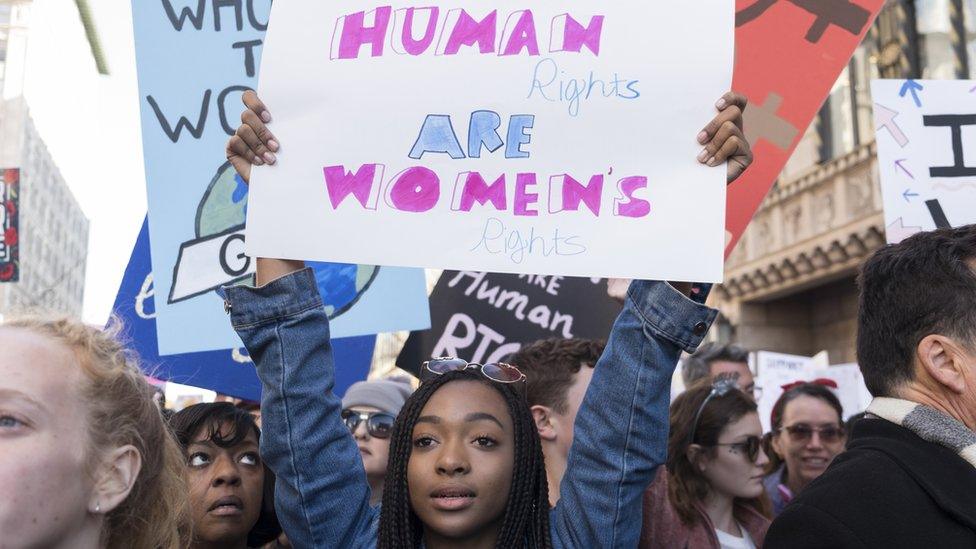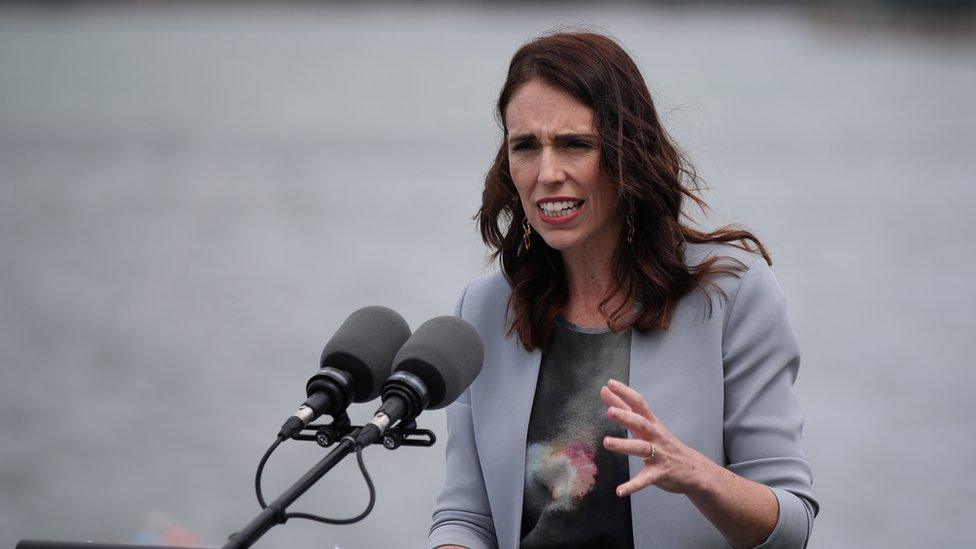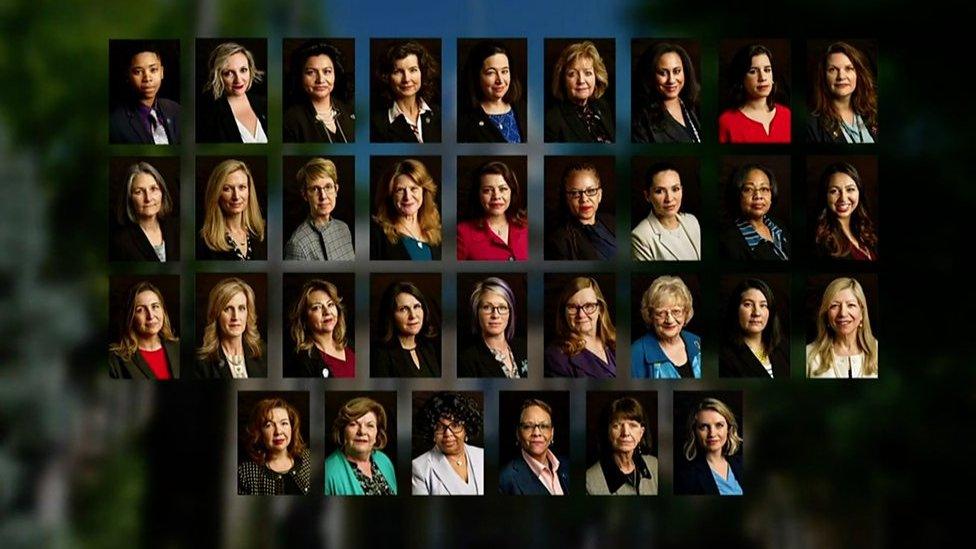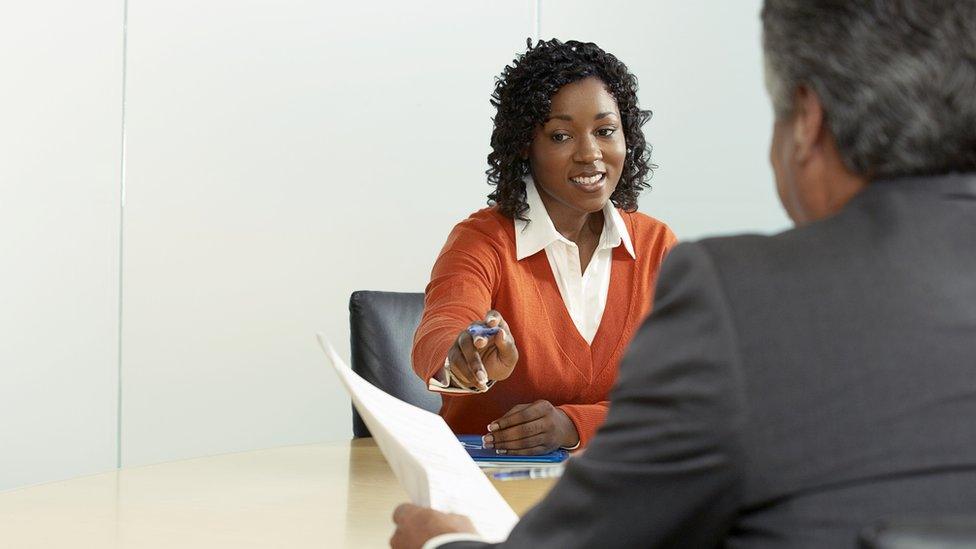Gender study finds 90% of people are biased against women
- Published

The report analysed areas of bias such as politics, education, reproductive rights and integrity
A new UN report has found almost 90% of men and women hold some sort of bias against females.
The "Gender Social Norms" index analysed biases in areas such as politics and education in 75 countries.
Globally, close to 50% of men said they had more right to a job than women. Almost a third of respondents thought it was acceptable for men to hit their partners.
There are no countries in the world with gender equality, external, the study found.
Zimbabwe had the highest amount of bias with only 0.27% of people reporting no gender bias at all. At the other end of the scale was Andorra where 72% of people reported no bias.
In Zimbabwe, 96% of people expressed a bias against women's physical integrity - a measure covering support for violence against women and opposition to reproductive rights. In the Philippines, 91% of people held views that were detrimental to women's physical integrity.
Women in political roles
According to the report, about half of the world's men and women feel that men make better political leaders.
In China, 55% of people thought men were better suited to be political leaders.
Around 39% of people in the US, which is yet to have a female president, thought men made better leaders.
However in New Zealand, a country that currently has a female leader, only 27% of people thought that.

In New Zealand, a country which has a female leader, 27% of people think men would be better leaders than women
The number of female heads of government is lower today than five years ago with only 10 women in such positions in 193 countries, down from 15 in 2014.
However when it comes to seats in parliament, there is a slightly higher percentage of women in these roles.
Latin America and the Caribbean had the highest share of seats in parliament held by women with 31%. South Asian countries had the lowest percentage at just 17%.

Pedro Conceição, head of UNDP's Human Development Report Office said: "We have come a long way in recent decades to ensure that women have the same access to life's basic needs as men.
"But gender gaps are still all too obvious in other areas, particularly those that challenge power relations and are most influential in actually achieving true equality. Today. the fight about gender equality is a story of bias and prejudices."
Women in the labour market
Women are paid less than men and are much less likely to be in senior positions. Globally, 40% of people thought men made better business executives.
In the UK, 25% of people thought men should have more right to a job than women and said men made better business executives than women did. In India that figure was 69%.
Raquel Lagunas, UNDP gender team acting director said: "We must act now to break through the barrier of bias and prejudices if we want to see progress at the speed and scale needed to achieve gender equality."
- Published4 March 2020

- Published17 December 2019
